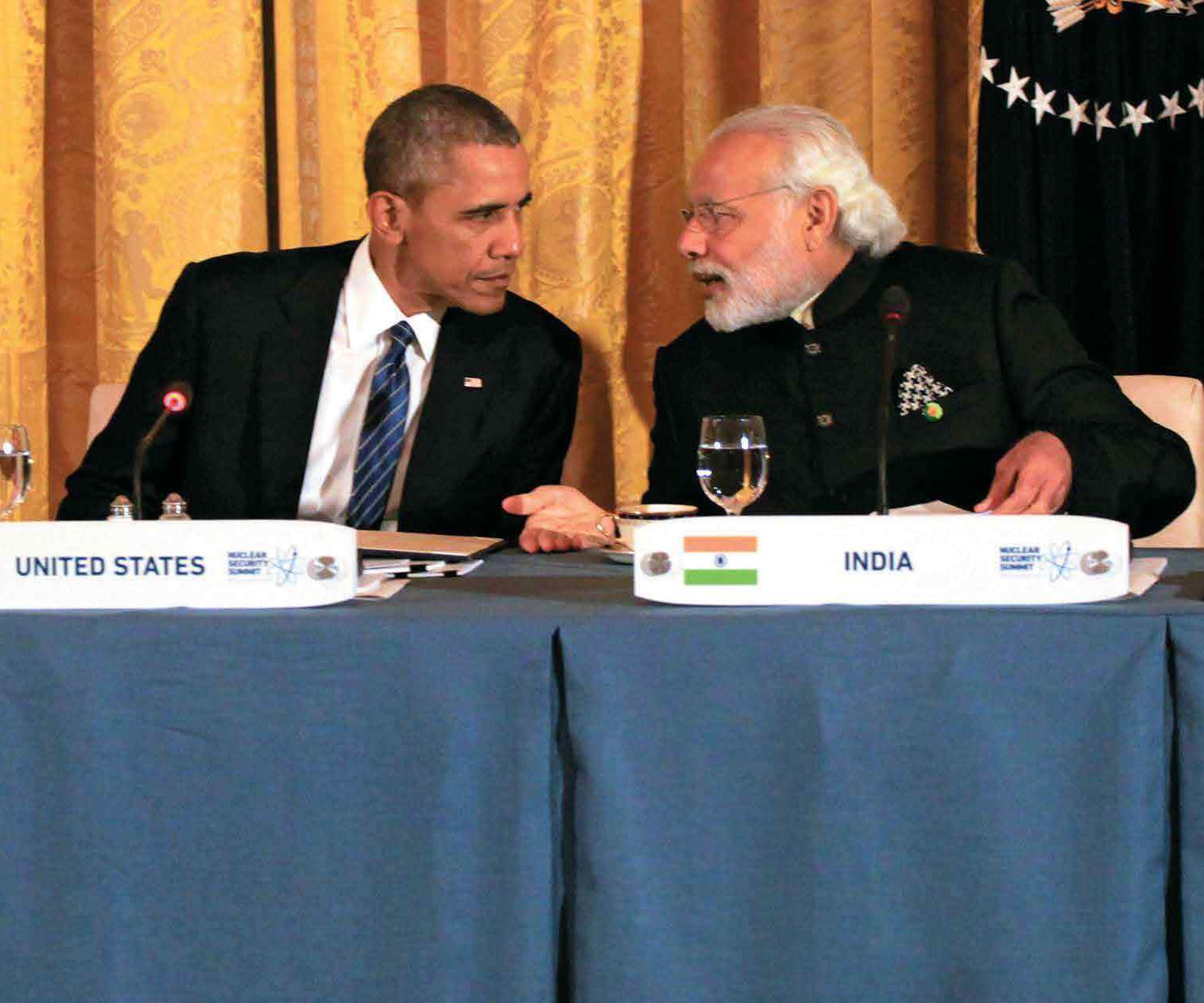Modi plays a triangular balancing game with the US and China. Will he succeed?

Despite recognizing the pre-eminence of the US on the world stage, Indian leaders have traditionally been wary of getting too close to America. Successive governments have tried to forge strong bonds with Washington—a desire that became more evident in the post-Cold War period—but without compromising on their pursuit of an independent foreign policy, maintaining equally strong bonds with other major powers. But as Prime Minister Narendra Modi prepares for next week’s visit to the US (June 7-8), his fourth in two years and second to Washington this year, the unprecedented bonhomie in Indo-US relations has begun to both encourage and bother many people, within and outside the country. What’s driving this closeness? What are its implications for India, the region and beyond?
Warming India-US ties
Modi has been the first Indian PM to visit the US thrice and hold as many bilateral meetings with an American president
India’s defence cooperation with the US has increased significantly under the Modi government
Ending its past reluctance, India signed the Logistics Assistance Agreement with the US that will bring the two navies closer
India has increased its engagements with Japan and other US allies in Asia, seen largely as a move against China
The US Congress is seriously considering a move to give India the status of a NATO-like ally to indicate their growing closeness
The downside of the closeness
US has not yet come out in support of India’s position in its boundary dispute with China—there is no guarantee it will do so in future
The Sino-Indian boundary has been quiet for years unlike the one with Pakistan. Renewed tension can also make it active.
India’s decision to host Chinese dissidents could lead Beijing to host and encourage similar anti-Indian forces within China
This story is from the June13, 2016 edition of Outlook.
Start your 7-day Magzter GOLD free trial to access thousands of curated premium stories, and 9,000+ magazines and newspapers.
Already a subscriber ? Sign In
This story is from the June13, 2016 edition of Outlook.
Start your 7-day Magzter GOLD free trial to access thousands of curated premium stories, and 9,000+ magazines and newspapers.
Already a subscriber? Sign In

Soft Ruins
'Soft Ruins' is a chapter within the long-term ongoing project \"When Spring Never Comes\", an expansive exploration of memory, identity and displacement in the aftermath of exile within contemporary global politics. It reflects on how the journey as an asylum seeker in Europe mirrors the instability and threats of life under dictatorship, amidst rising right-wing movements and shifting power dynamics, where both certainty and identity are redefined

Building Beyond Homes: Provident Housing's Transformative Approach
Provident Housing leads in crafting thoughtfully designed homes that cater to modern homebuyers' evolving needs. With a focus on timely delivery, sustainability, and innovative, customer-centric solutions, the company sets new benchmarks. In this exclusive interview, Mallanna Sasalu, CEO of Provident Housing, shares insights into the company's strategies, upcoming projects, and vision for India's housing future.

Syria Speaks
A Syrian graffiti artist-activist's tale of living through bombings, gunshots and displacement

The Burdened
Yemen, once a beautiful land identified with the Queen of Sheba, is now one of the worst ongoing humanitarian disasters of modern times

Sculpting In Time
Documentaries such as Intercepted and Songs of Slow Burning Earth grapple with the Russian occupation beyond displays of desolation

The Story Won't Die
Is Israel's triumphalism over its land grab in Syria realistic? The hard reality is-Israel now has Al-Qaeda as a next-door neighbour

Against the Loveless World
In times of war, love exists as a profound act of defiance

Soul of My Soul
What does it mean to continue to create art during a genocide?

in Dancing the Glory of Monsters
By humanising the stories of those affected by war, poverty and displacement, Buuma hopes to foster empathy and inspire action

All the President's Men
Co-author of All The President's Men and one of the two Washington Post journalists (the other was Carl Berntstein) who broke the Watergate scandal that brought down the President Richard Nixon administration in the United States in 1974, Bob Woodward's recent book War was on top of The New York Times Bestseller list, even above John Grisham.